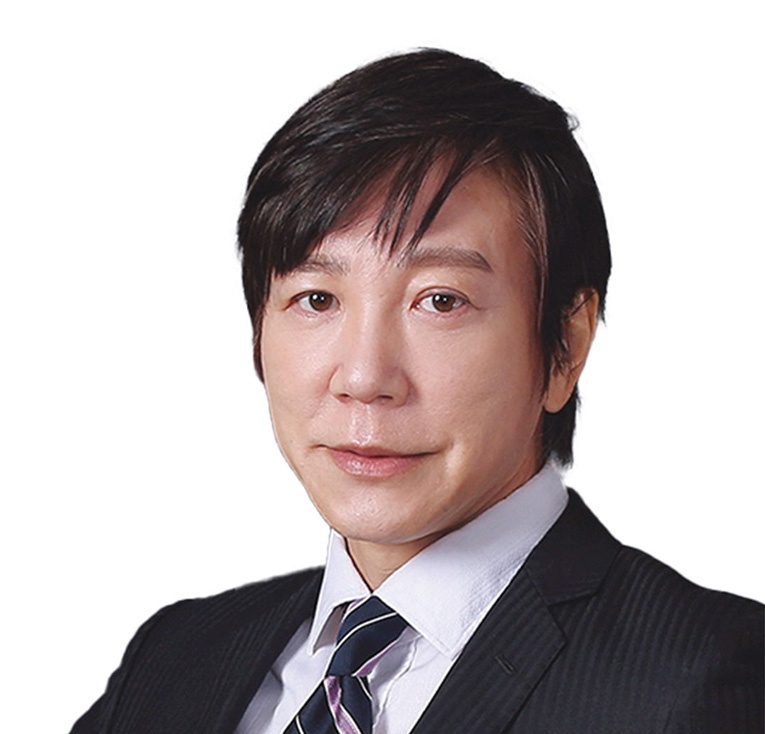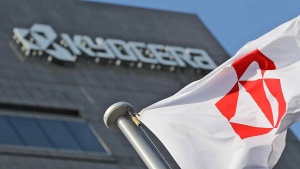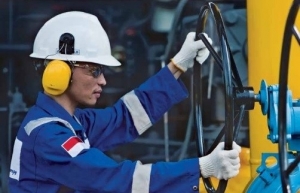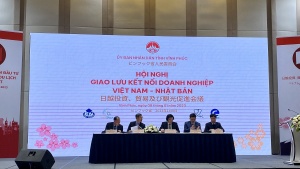Japanese investors keeping eye on fresh 2023 trends
Vietnam is a very open economy, and what is happening worldwide affects the country directly. Vietnam receives $2-3 billion of foreign direct investment (FDI) annually, has over a dozen free trade deals in effect, and the trade volume with the world has doubled over the last six years.
 |
| Takeo Nakajima-Chief representative in Hanoi Japan External Trade Organization |
The Japanese companies in Vietnam are no exception. The good news in the first half of the year was that social constraints were lifted, manufacturers recovered operations (though not entirely due to labour shortages and supply chain conditions), and export markets in North America and Europe kept purchasing goods from Vietnam. However, from July, inflation kept rising, China did not lift major city lockdowns, and US purchasing power slowed due to high interest. Order for apparel, footwear, car parts, electronics, machinery, and steel also slowed down. The latter half of 2022 did not help a solid recovery of Vietnam.
In terms of FDI, 2022 was better for Japanese investors than 2021. Marubeni and Tokyo Gas led the year’s most prominent investment in the northeastern province of Quang Ninh’s liquefied natural gas (LNG) power plant project. Also, AEON Mall in the central city of Hue received approval from the Vietnamese government. Japan’s investment reached $4.6 billion, the second largest, next to Singapore.
Easing border restrictions, tax reductions for affected sectors, and measures to counter inflation have been notable initiatives by the Vietnamese government. The leaders were quick to implement urgent policies under challenging situations.
Also, the government and local administrations frequently held an open dialogue to listen to foreign-invested enterprises and organisations. I attended and presented a speech in front of Prime Minister Pham Minh Chinh, Minister of Planning and Investment Nguyen Chi Dung, and other distinguished political leaders in the northern province of Lao Cai in August and in Hanoi in September.
The dialogue between Vietnam and Japanese business leaders continues, and many joint initiatives are now in their latter stages. Each side is actively taking discussions, joint projects, and implementing meaningful changes to improve the environment of Vietnam. The Japan External Trade Organization, among others, assist with this process.
Besides dialogue, the Japanese still face several obstacles, according to a survey we carried out in recent times. The most significant risk for the Japanese in Vietnam is a steep wage increase. The economy had grown just over 2 per cent in 2020 and 2021 under the pandemic, and still, the average wage increase was 5-6 per cent.
Foreign investors want the Vietnamese government and the locality to train rural labour forces to shift into industrial sectors. Also, improving productivity and providing affordable housing for workers are essential to ease the labour shortage. The second is administrative procedures. We strongly call for transparent, fair, and speedy regulatory implementations because such organisational issues worsened during the pandemic.
We constantly hear concerns by the Japanese firms that electricity and energy uncertainty would cast doubts on business operation in future. The Vietnamese government wants more FDI in Vietnam, while global players want more factories and offices in Vietnam. High-tech industries such as semiconductor manufacturing require a large volume of electricity.
Yet, the electricity supply shortage may hinder FDI from increasing and expanding. We expect Vietnam’s government to present a clear path to target stable energy supply for economic growth and energy conservation to reduce carbon emissions.
Another area is innovation. For example, advanced valve manufacturer Fujikin Vietnam has opened its first research and development (R&D) facility in the Danang Hi-tech Park. The facility will develop AI robots, innovative medical equipment, and hydrogen energy technology. Fujikin will invest $35 million in this project.
New technologies require new legal and regulatory frameworks. Autonomous driving, delivery by drones, remote medical care, and cryptocurrencies call for transparent and fair regulations to protect fraud and accidents while prosper innovation. Vietnam’s National Innovation Centre will maintain collaboration to ensure Vietnam will be a next innovation powerhouse in this regard.
According to our recent research, Japanese firms in Vietnam have a better outlook for 2023. Over half of all firms surveyed will expect profits to increase in 2023, six points up from 2022. Over one-third of firms in Vietnam will reinforce high-value production, 30 per cent more general-purpose production, and 10 per cent R&D. We will see more quality investment from Japan in this country, no doubt.
A notable trend is environment and energy-related, since Vietnam will target more environmentally friendly energy production and conservation. Smart cities, on- and off-site solar power generation, liquefied natural gas power plant infrastructure, wind farms, biomass plants, and waste-to-energy projects are just a few examples. Japan has vast global experience in this field.
Another space is digital transformation. We have carried out a series of webinars and business matchings between Japanese and Vietnamese players. Notable collaborative examples include Gakken and Vietnam’s Kiddihub, which will expand online education in Vietnam together, while Sojitsu and Rynal Holdings have initiated high-tech agricultural projects. We expect further collaboration and merger deals by both sides in the time to come.
 | Japanese manufacturer Kyocera to expand semiconductor investment in Vietnam Kyocera Corporation, a Japanese multinational ceramics and electronics manufacturer, will double its previous three-year investment in semiconductor-related manufacturing and other industries in a number of countries, including Vietnam. |
 | Japan invests in Indonesia’s geothermal energy project Japanese oil and gas driller Inpex has announced that it invested in a geothermal energy project in Indonesia and will study the potential to develop a power plant in the Southeast Asian nation. |
 | Japanese investors look for opportunities in Vinh Phuc 25 Japanese enterprises are seeking investment opportunities in Vinh Phuc and other inter-regional projects. |
What the stars mean:
★ Poor ★ ★ Promising ★★★ Good ★★★★ Very good ★★★★★ Exceptional
Related Contents
Latest News
More News
- Kurz Vietnam expands Gia Lai factory (February 27, 2026 | 16:37)
- SK Innovation-led consortium wins $2.3 billion LNG project in Nghe An (February 25, 2026 | 07:56)
- THACO opens $70 million manufacturing complex in Danang (February 25, 2026 | 07:54)
- Phu Quoc International Airport expansion approved to meet rising demand (February 24, 2026 | 10:00)
- Bac Giang International Logistics Centre faces land clearance barrier (February 24, 2026 | 08:00)
- Bright prospects abound in European investment (February 19, 2026 | 20:27)
- Internal strengths attest to commitment to progress (February 19, 2026 | 20:13)
- Vietnam, New Zealand seek level-up in ties (February 19, 2026 | 18:06)
- Untapped potential in relations with Indonesia (February 19, 2026 | 17:56)
- German strengths match Vietnamese aspirations (February 19, 2026 | 17:40)

 Tag:
Tag:

















 Mobile Version
Mobile Version